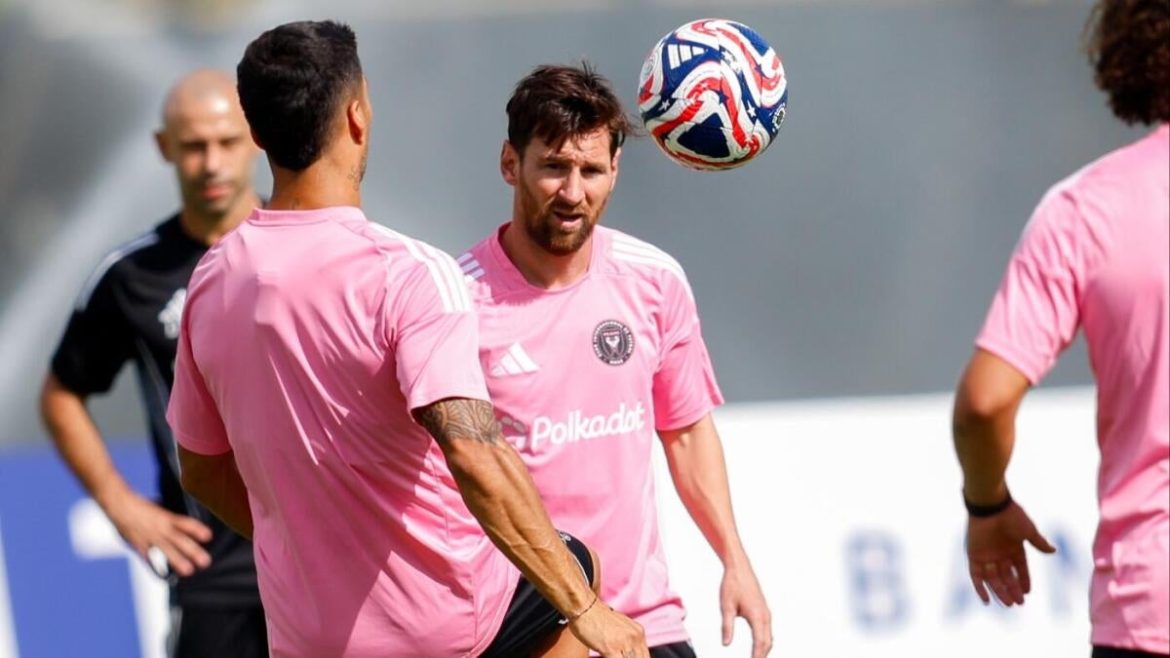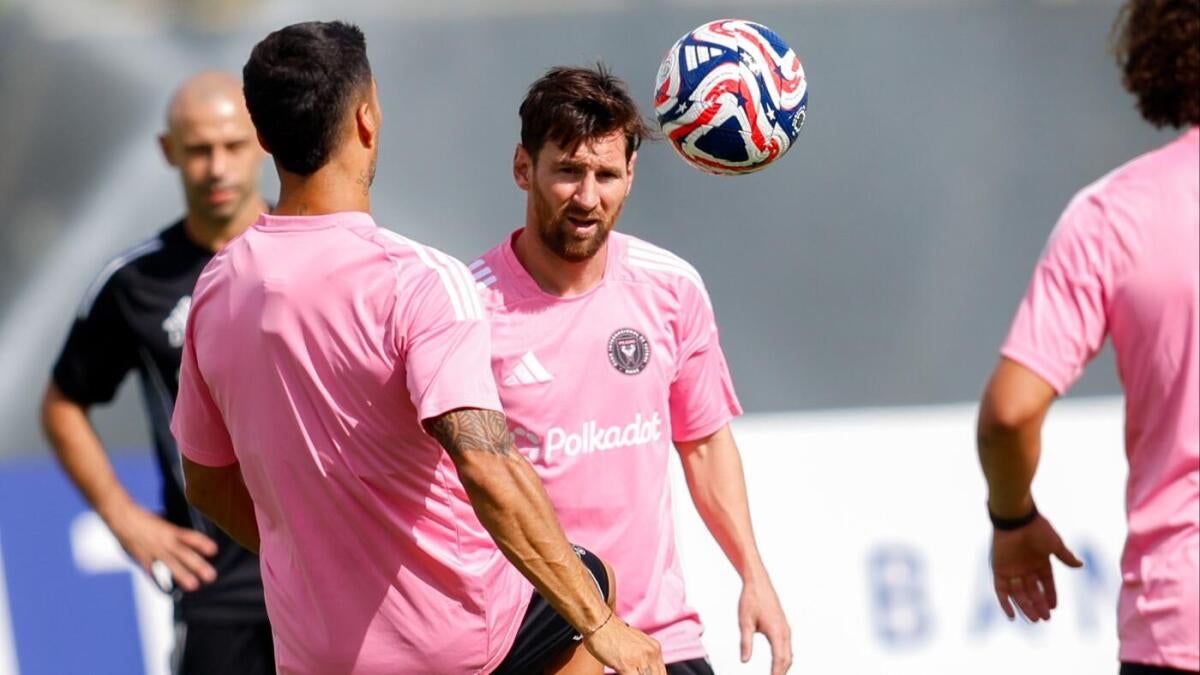The Major League Soccer (MLS) Club World Cup Bonus Dispute: A Comprehensive Analysis
The 2025 FIFA Club World Cup has brought excitement and challenges to Major League Soccer’s landscape beyond the competition itself. While three MLS clubs—Inter Miami, Seattle Sounders, and LAFC—prepare to compete on the global stage, a significant conflict is unfolding between the players and league management over the distribution of prize money. This dispute exposes underlying tensions in player compensation frameworks and sheds light on the broader dynamics of professional sports labor relations.
Background: MLS Teams Participating in the Club World Cup
The Club World Cup is a prestigious international tournament, featuring 32 elite clubs from different continents, and offers substantial prize money. Each team qualifying for the tournament is guaranteed $9.55 million. For MLS, this opportunity reflects an important milestone to demonstrate competitiveness and growth in international soccer.
However, the competition comes with a controversy focused on how the prize money is shared between teams and their players. At the heart of the matter is MLS’s current Collective Bargaining Agreement (CBA), which establishes parameters for player bonus shares from external tournaments like the Club World Cup.
The Root of the Dispute: Collective Bargaining Agreement and Prize Money Sharing
The CBA between MLS and the Major League Soccer Players Association (MLSPA) allocates that players receive 50% of prize money obtained from “outside competitions,” capped at $1 million per team. This clause did not anticipate the scale of the Club World Cup prize pool, where the total winnings for a victorious team could exceed $124 million, making the $1 million cap appear widely disproportionate.
A recent league proposal suggested an additional 20% “performance bonus” on top of the base $1 million payout, but this was met with outright rejection from the union. Players viewed the offer as “retaliatory,” especially amid their protests, which included Seattle Sounders players wearing T-shirts voicing dissent. The MLS ownership threatened repercussions, escalating tensions further.
Players’ Perspective: Calls for Fairer Compensation
From the players’ standpoint, the existing compensation structure undervalues their contribution and fails to fairly reward participation in such a high-profile tournament. Given that the tournament’s prize money is significant, the capped payout does not reflect their stakes or risks.
Seattle Sounders players, notably among the most vocal, have expressed frustration and staged protests to demand a revision of the terms. The union argues that the CBA’s outdated clauses hinder equitable compensation and that performance bonuses tied to the Club World Cup’s large prize purse should be substantially increased.
Furthermore, the players’ union accuses league management of “retaliation” for their vocal opposition, citing threats and negative treatment possibly impacting players’ career opportunities. These claims highlight broader issues about power dynamics and labor rights within professional soccer.
MLS Management’s Position: Constraints and Proposals
MLS league officials contend that the structure of the CBA intends to provide a balance between rewarding players and managing the league’s financial sustainability. The current cap on prize shares serves as a safeguard against excessive payouts from unpredictable external competitions.
The league proposed an incrementally larger share — an additional 20% on top of the guaranteed base payout — but emphasizes that further increases could jeopardize financial health or lead to precedents that are difficult to maintain. The league’s threats of retaliation, while controversial, signal an attempt to assert control over union actions perceived as disruptive.
In response to protests and public scrutiny, MLS maintains that it desires a fair and mutually agreeable outcome but has thus far struggled to find common ground with the players’ union.
The Broader Context: Labor Relations and Player Empowerment in Professional Sports
This dispute resonates beyond MLS, reflecting long-standing labor-management frictions seen in professional sports leagues worldwide. Players increasingly demand a more prominent role in decisions affecting their compensation and rights, aiming for transparent and representative negotiations.
Instances like the National Football League’s protests related to Colin Kaepernick or the concerns about retaliation in other sports contexts parallel MLS players’ claims. The trend indicates growing assertiveness among athletes to leverage their collective voice for equitable treatment.
At the same time, leagues face pressures to balance competitive growth, financial viability, and stakeholder interests including ownership, sponsors, and fans.
Potential Outcomes and Recommendations
The resolution of this dispute carries significant implications:
– For Players: A revised agreement with fairer compensation terms would recognize their contributions and incentivize peak performance during major tournaments.
– For MLS: Finding a collaborative solution can prevent reputational damage and maintain player morale, crucial for league development and international opportunities.
– For Future CBAs: This may prompt comprehensive reviews of contract terms regarding external competition earnings, fostering adaptable and contemporary standards.
Potential paths include mediation to bridge differences, crafting bonus schemes tied progressively to prize amounts, or revisiting caps with clear rationale and transparency.
Conclusion: A Critical Moment for MLS and Professional Athlete Compensation
The ongoing struggle over Club World Cup prize money between MLS players and league management encapsulates the evolving landscape of professional sports labor relations. It throws into relief issues of fair pay, player agency, and the balancing act leagues must perform amid financial and competitive pressures.
As three MLS clubs battle on the world stage, behind-the-scenes negotiations will define not only how rewards are shared but also the principles guiding player rights and league governance in the future. The resolution—or lack thereof—will shape perceptions of MLS as an employer and contribute to broader dialogues about athlete empowerment and fairness in global sports.
Navigating this sensitive conflict thoughtfully will be key to securing trust, promoting solidarity, and advancing Major League Soccer as a truly modern and equitable sporting institution.





